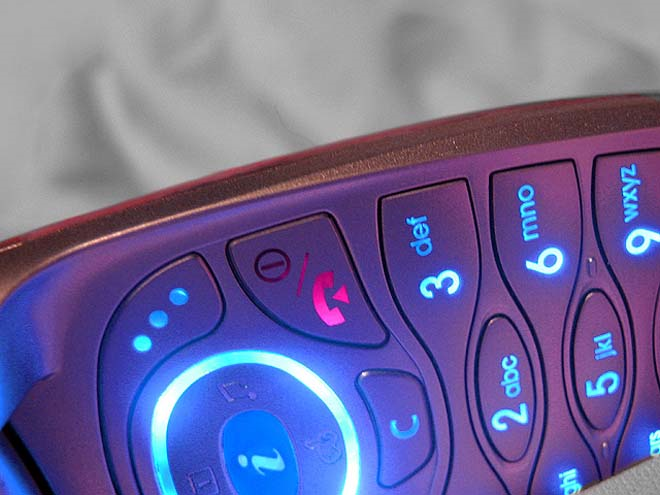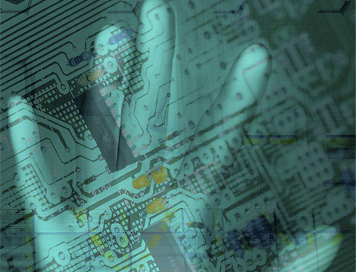
- •Часть 2
- •Vocabulary practice section 1
- •Vocabulary practice section 2
- •Vocabulary practice section 3
- •This week: software
- •Vocabulary practice section 1
- •Vocabulary practice section 2
- •Internet: Voice recognition takes off
- •Programming languages
- •Vocabulary practice section 1
- •Vocabulary practice section 2
- •Vocabulary practice section 3
- •The 15 enemies of the Internet
- •Internet crime
- •Vocabulary practice section 1
- •Vocabulary practice section 2
- •Vocabulary practice section 3
- •How a virus infects a program
- •Vocabulary practice section 1
- •Video Games
- •Vocabulary practice section 2
- •Vocabulary practice setion 3
- •Vocabulary practice setion 4
- •Twitter's transmitters
- •Vocabulary practice section 1
- •Good Web Design? What Is It?
- •Vocabulary practice section 2
- •Vocabulary practice section 3
- •Top Five Ways to Make Your Site More Popular
- •1. Strong Hosting
- •2. Optimize Your Website
- •3. Take Advantage of Social Media Optimization
- •4. Get Your Visitors Involved
- •5. Emphasize Usability in Your Design
Vocabulary practice section 3
1. Match the sentence beginnings with the correct endings.
1. A plug-in is |
a. let you interact with information on the screen. |
2. Shockwave and Flash |
b. usually needed to enjoy audio and video files. |
3. Multimedia files can be included |
c. are some of the common audio formats. |
4. Java applets |
d. applications help to create animation. |
5. MIDI, WAV, MP3 and AU |
e. in web pages. |
6. WMV, MPEG1, MPEG2, MPEG4, Quick Time |
f. a copyright protection system for digital music files. |
7. AAC, Ogg Vorbis, SHN |
g. is an audio format used for storing high-quality, uncompressed sound. |
8. WAV |
h. are video file formats. |
9. SDMI |
i. are compression formats for digital audio. |
2. Complete the conversation between a web designer and his client by choosing the right word.
Web designer (WD): So can I ask what kind of (1) (a. web page b. web site c. home page) you want? Client (C): Well, I’m a singer in a band, and I need an online presence to help with promotion, that kind of thing. I don’t want anything too complicated. It’d be good if it looked nice, though. Perhaps a nice (2) (a. background b. graphics c. text) and some attractive (3) (a. background b. graphics c. RSS feeds). WD: OK, that doesn’t sound too complicated. Will you need (4) (a. streaming audio b. plug-ins c. Cascading Style Sheets) and (5) (a. HTML b. PDF-s c. full motion video), too? I mean, do you want people to be able to listen to your music direct from the |
|
site and watch music videos, that kind of thing?
C: Yes, it’d be great if people could do that.
WD: OK, well a visitor might need to download the appropriate (6) (a. plug-ins b. HTML
c. graphics) , but that’s very easy. And what about (7) (a. Cascading Style Sheets b. wallpaper c. RSS feeds)? It’s good if people can find out about any new updates to the site automatically.
C: Sure, but how expensive is all of this going to be?
WD: You needn’t worry. It sounds like the kind of job that we’ll do using a (8) (a. Cascading Style Sheets b. web editor c. tag) like Dreamweaver. That’ll make things quicker – and cheaper – than hard-coding in (9) (a. text b. HTML c. RSS feeds). We also now use something called (10) (a. Cascading Style Sheets b. HTML c. plug-ins) , which allow us to add styles to web documents. It’s basically a way of making presentation changes across a website more easily. When do you want the site to (11) (a. go live b. go on c. go out)?
C: In a month, if possible. I’ve already written all of the (12) (a. graphics b. text c. streaming audio). Could I just email that to you?
WD: Yes, please do. I can start the work on this next week.
C: OK. Actually, that reminds me, I need to get in touch with the other members of the band and ask them to send me any images that they want to put on the site. Which file formats do you prefer?
WD: Jpeg or gif are best for images, and avi or mpeg for video files. Oh, and any audio files must be in mp3 or wav. That’s better than Real Audio files, which some media players can’t play.
C: No problem.
WD: OK, then. Once I have all of the files, I’ll (13) (a. publish b. update c. format) the text, insert the graphics and sounds, link all of the pages together, and then we can publish the website. You can try and keep it updated, too. I can help with that, for only a small fee.
C: Great, that sounds perfect.
GRAMMAR PRACTICE SECTION
Revision |
|
1. Look at these extracts from various websites. Are the words in bold verbs, nouns, adjectives or adverbs?
|
1. Click here to begin your download. 2. Download the MP3 file now! 3. Buy now by visiting our store. 4. We will not store your details for more than 14 days. 5. Click here for an online discount. 6. Buy online by clicking here. |
2. Complete this review of a digital camera by writing in the superlative form of the adjectives in brackets.
With 6.0 megapixels and 3x optical zoom, the D930 is (1) … (good) the high resolution digital camera available in this price range. You can use the D930 to produce some of (2) … (sharp) images possible and take detailed photos for printing up to poster size. In addition, it has a 3x optical and 5x digital zoom, giving 15x total zoom when combined – (3) … (high) in any digital camera under £50. ASR technology prevents the degradation of image clarity and colour common in flash photography. With ASR, the effects of camera shake are reduced in lower light conditions; you can even take well exposed, sharper pictures in low light without using a flash at all. It guarantees (4) … (bright) and (5) … (natural) pictures possible at this price.
3. Complete this extract from the interview with Matt Robinson by choosing adjective or adverb from brackets.
Interviewer: So which game genres do you think will be the most popular in the future?
|
Matt: I think console games will play a (1) … (large/largely) part in shaping the future of games, while (2) … (simultaneous/simultaneously) helping to attract a (3) … (new/newly) audience. Games like Wii Sports have already proven (4) … (immense/immensely) popular, just by emulating real-world games such as tennis and bowling, and making them as (5) … (easy/easily) to play as their real-life counterparts. You (6) … (simple/simply) move the controller around. Of course, the more (7) … (traditional/traditionally) video game genres, such as Halo and Burnout, will continue to sell just as |
(8) … (good/well) as they always have. (9) … (Finally/Final), there’s online gaming. As connection speeds increase, and hardware improves, so does the potential to create (10) … (fully/full) living online worlds, much like you see in Second Life, for example.
4. David is having an interview for a job as a webmaster. Choose the correct words in brackets.
Interviewer: So why (1) … (have you been applying/ have you applied) for this position?
David: Well, (2) … (since/for) the last three years I (3) … (‘ve been working/ worked) in an interesting, but very small, company, and I now feel ready to move on to a bigger challenge. I’d welcome the opportunity to continue my career at a company such as yours.
Interviewer: Right. And can you describe what your responsibilities are at – what’s your current company called again? Ah, yes, at Intertech?
David: Of course. Well, I (4) … (started/ have started) there three years (5) … (since/ago), as I (6) … (have said/ said), and (7) … (until/for) July 2007 I (8) …(have been/was) responsible for one aspect of the company’s online presence – specifically, the online catalogue. However, I was then promoted and put in charge of the design and maintenance of the entire website. In January 2008, I (9) … (helped/ help) to implement a new e-commerce system, which allows people to buy directly from the catalogue using ‘one-click’ ordering. It (10) … (‘s been/was) very successful so far.
Interviewer: That’s very impressive. What about foreign languages? Your English is obviously very good, but do you speak any other languages?
David: Well, French – my mother tongue – obviously. I also (11) … (have spent/spent) some time in Spain five years (12) … (since/ago) as part of my degree, so I’d say I have intermediate Spanish. I (13) … (haven’t been practicing/ didn’t practise) it much recently, though.
Interviewer: Well, it is hard to find the time, isn’t it? OK, just one more thing. (14) … (Did you/ Have you) ever had experience of people management?
David: Yes, absolutely. At Intertech I’m in charge of one member of staff – a web editor. I’ve (15) … (never/ever) had any problems with the management side of my role; in fact, I really enjoy it.
Interview: OK, well that’s good news. Well, we need to have a think about it, but we’ll let you know ASAP.
David: Thank you for seeing me today. I look forward to hearing from you soon.
5. Complete the following blog entry by writing in the passive form of the verbs in brackets.
|
23rd February We had an interesting discussion about mobile phones in class today. Opinion (1) … (divide) about whether they’re a good thing or not. Despite the fact that mobile phones (2) … (invent) to make our lives more convenient (supposedly!), it’s clear that we’ve become totally dependent on them. Most of the class even use them to watch videos or listen to music. |
They’re expensive, too. Most people said they spent over £20 a month on their phone, despite the fact that free calls and text messages (3) … (include) in most tariffs these days. Part of the problem is that MMS messages aren’t free, and many calls (4) … (make) during the day, when the free minutes don’t count.
There was also some worry about the potential health problems of mobile phones. Despite all the warnings, mobile phones (5) … (use) by children as young as five or six these days! The really worrying thing is that the true damage done by mobile phones (6) … (not know) until we’re all much older. By then, it’ll be too late! No one was suggesting that they should (7) … (ban), but clearly more research needs to (8) … (do).
6. Anthony Then and Beth are discussing a magazine article about new technologies. Complete their conversation by choosing the correct verb forms in brackets. Decide what type of new technology they are discussing in each part of the conversation in the boxes.
Nanotechnology Smart homes RFID Artificial Intelligence Ubiquitous computing |
Anthony: Have you seen this article in the New Scientist? It’s all about new technologies. It’s fascinating.
Beth: Go on, then. How (1) … (are our lives going to change/ will our lives be changing)?
Anthony: It’s predicting that pretty soon scientists (2) … (are going/will) to be able to make devices like computers and robots using single cells and atoms.
Beth: Wow. To do what?
Anthony: Well, they’re talking about being able to treat diseases at a cellular level by injecting one of these miniature robots, or using the technology to make new, more flexible materials from carbon atoms.
Beth: What (3) … (will they think of/ will they be thinking of) next?
Nanotechnology Smart homes RFID Artificial Intelligence Ubiquitous computing |
Anthony: Well, it’s funny you should ask. The article goes on to talk about things like robotics and androids. Beth: Androids? Anthony: Yeah. It says that by 2050, scientists (4) … (will have built/ will build) androids that look like humans and have the capacity to interact like humans. |
|
Beth: I don’t think I like that idea. I think it (5) … (‘ll have been/‘ll be) more trouble than it’s worth. Imagine everything that could go wrong!
Nanotechnology Smart homes RFID Artificial Intelligence Ubiquitous computing |
Anthony: OK, I think you (6) … (‘ll be liking/‘ll like) this next one more. How about having a computer that controlled all of the appliances and electronic equipment in our house? It would save money because the house would know when you weren’t home, and it’d make sure everything was turned off.
Beth: It (7) … (‘ll probably have been/‘ll probably be) expensive, though, I imagine.
Anthony: Who knows how much things (8) … (will be costing/will cost) in future! Perhaps (9) … (we’ll all have lived/ we’ll all be living) on the Moon by then!
Nanotechnology Smart homes RFID Artificial Intelligence Ubiquitous computing |
Beth: What does that last bit of the article say? The bit with the photo of that small microchip?
Anthony: Hang on a minute, I (10) … (‘m going to/’ll) look. Umm ... it’s talking about a type of technology that uses radio waves and these things called ‘tags’ to identify people.
Beth: People? So they could embed one of these tags in me?
Anthony: Well, in theory, yes. But they’re mainly used on animals – so you can track your pet if they vanish – and on products in shops – so that they can stop people stealing. Beth: Mmm. It still sounds suspicious to me. Anthony: Well, it does say here that some organizations are worried about privacy issues. |
|
Beth: I do worry that in the future, governments and big corporations (11) … (will be using/ will have used) all of these new types of technology to keep us under control.
Anthony: You worry too much. Here, you finish the article. I (12) … (’ll make/‘ll be making) us a nice cup of tea.
7. Complete the letter to a desktop publishing company by typing in words from the box.
look forward faithfully would grateful currently could writing |
Dear Sir/Madam,
I am (1) … to enquire about the possibility of doing work experience with your company this summer. I am (2) …. in my first year of a desktop publishing course at York Technical College and am keen to gain some hands-on experience of the workplace.
I (3) …. be (4) …. if you could let me know if you have any openings for work experience candidates this summer. If so, please (5) … you also tell me what kinds of task I would be able to do during the placement?
I have enclosed a copy of my CV, and I (6) …. to hearing from you.
Yours (7) …,
Anna Bernard
READING PRACTICE SECTION






